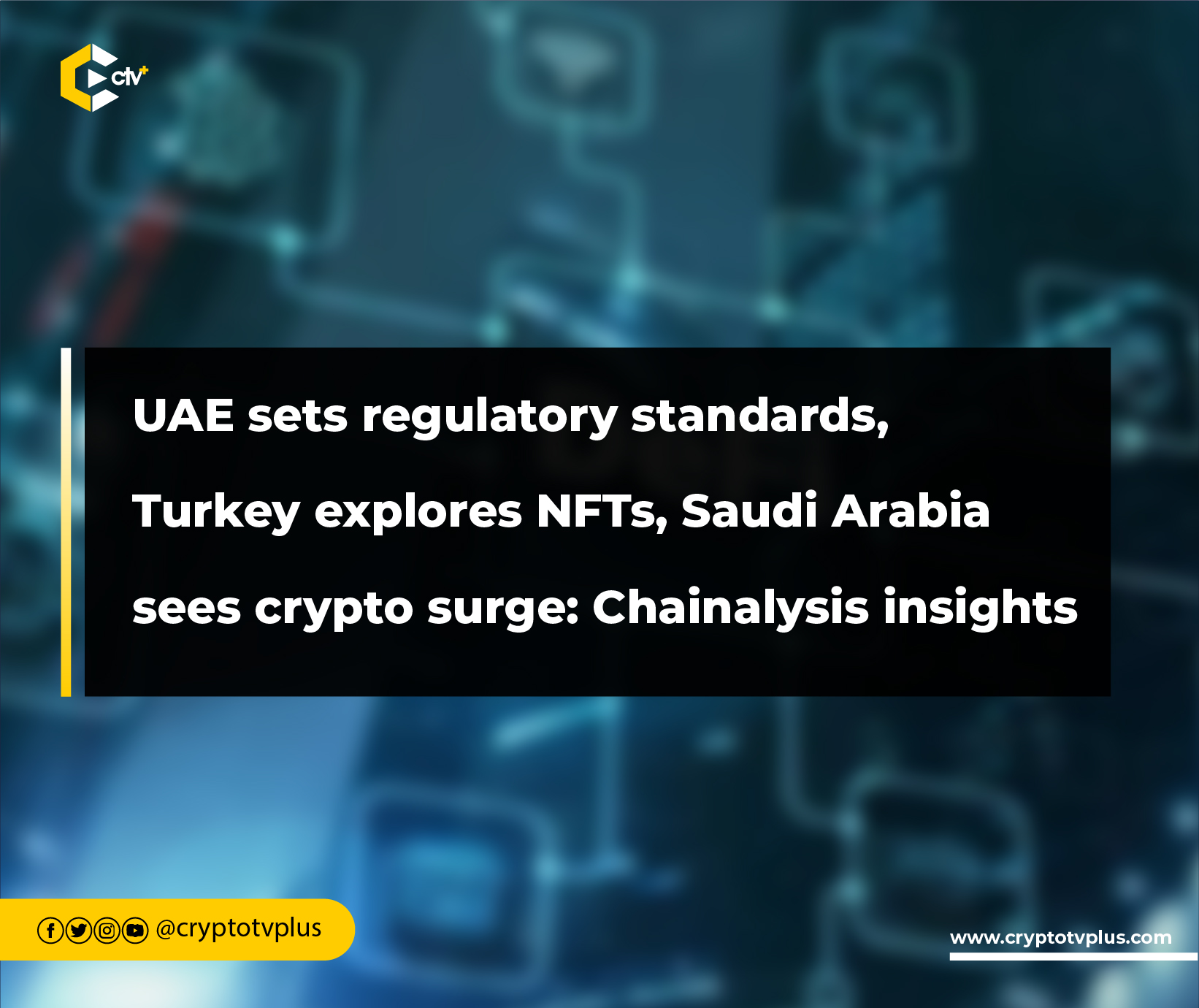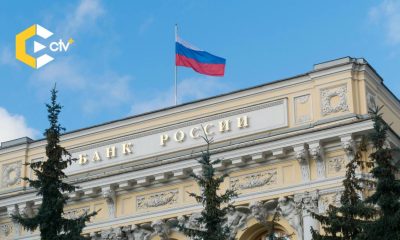News
UAE sets regulatory standards, Turkey explores NFTs, Saudi Arabia sees crypto surge: Chainalysis insights

The world has witnessed the widespread adoption of cryptocurrency, and the Middle East & North Africa (MENA) region has actively participated in this over $1 trillion market. According to Chainalysis, MENA now stands as the sixth-largest cryptocurrency market globally.
Between July 2022 and June 2023, the MENA region recorded approximately $389.8 billion in on-chain value, representing nearly 7.2% of the total global cryptocurrency transaction volume. Each country in this region has made unique contributions to these impressive statistics.
Notably, Turkey, Morocco, and Iran have emerged as key players in cryptocurrency adoption, ranking among the top 30 countries worldwide.
Now, let’s delve into how the crypto industry has evolved within the region, with a particular focus on the crypto landscape in UAE and Turkey. We will explore how their distinct circumstances and inspiration have shaped their approach to adopting cryptocurrencies.
The UAE: A Global Crypto Hub
The United Arab Emirates (UAE) stands out as a leader in innovation and crypto adoption in the Middle East and North Africa (MENA) region. The country has taken significant measures to adopt, adapt, and attract crypto-related technologies into its economy.
According to Chainalysis, it sets itself apart by actively embracing decentralized finance (DeFi) protocols, which is quite different from the approaches taken by neighboring countries.
The UAE’s accomplishments in the crypto sphere can be attributed to its forward-thinking and innovation-friendly regulatory frameworks established by the government. These frameworks have successfully attracted crypto entrepreneurs and enthusiasts alike.
These progressive regulations not only protect consumers but also foster an environment that supports groundbreaking crypto platforms and projects. The regulators in the UAE have taken a proactive stance in embracing blockchain technology and cryptocurrencies.
A prime example of this commitment to innovation is Dubai’s introduction of the Virtual Asset Regulatory Authority (VARA) in 2022, aimed at advancing these goals. VARA’s comprehensive regulatory framework, unveiled in February 2023, has played a key role in attracting numerous crypto players to the UAE.
What sets VARA apart is its tailored approach to different virtual asset services and activities, offering businesses precise regulatory guidelines for various services.
The Future of Cryptocurrency in the UAE
Chainalysis believes that the UAE will play a crucial role in the future of cryptocurrencies, given its impressive figures and accomplishments.
The state has introduced business models that are particularly favorable for crypto-based businesses compared to other parts of the world.
Several firms, including Binance, Crypto.com, OKX, and Komainu (a subsidiary of Nomura), have obtained licenses to operate in the UAE. Additionally, TOKO has acquired licenses within the Emirate to provide virtual asset services to enterprise and institutional clients.
TOKO is a Web3 fintech platform that leverages distributed ledger technology to facilitate fast and cost-effective asset transactions.
By simplifying the tokenization journey, the platform allows clients to focus on making a difference in their respective fields.
Another significant factor contributing to the growth of cryptocurrencies in the UAE is the presence of expat communities from countries like India, the Philippines, and Pakistan.
These communities play a vital role in driving the adoption of cryptocurrencies in the UAE. As individuals from these nationalities increasingly show interest in cryptocurrencies, it is expected to lead to a corresponding increase in crypto adoption within the UAE.
Turkey: Battling Currency Devaluation and Attraction for NFTs
Another country worth considering in the MENA region is Turkey. It holds the 12th position on the Global Crypto Adoption Index and plays a significant role in the crypto landscape.
Turkey is widely regarded as one of the best hubs for hosting various crypto events, including the Blockchain Economy Istanbul Summit, CryptoCurrency World Expo, and Binance Blockchain Week Istanbul.
In addition to these events, Chainalysis reports that Turkey ranks fourth globally in terms of raw crypto transaction volume, with approximately $170 billion received in the past year alone.
This remarkable level of adoption can be attributed to several factors, such as the country’s economic climate and the tech-savvy nature of its population.
Similar to many other nations, the surge in crypto adoption in Turkey can be attributed to the significant impact of increasing inflation and currency devaluation.
The steep decline of the Turkish Lira, along with the central bank’s decisions to lower interest rates, has motivated people to seek alternative options, including cryptocurrencies.
Cryptocurrencies provide a means to preserve wealth, diversify investment portfolios, and participate in new asset classes during times of economic instability.
According to Chainalysis, Turkey has shown a strong interest in stablecoins. Despite the overall decline in NFT activity since mid-2022, the country leads the MENA region in web traffic to NFT platforms.
Innovations such as NFTs and utility tokens are expected to have a significant impact across various industries, including retail, entertainment, and art. It is no surprise that events focused on NFTs, such as Unraveling NFTs – Istanbul, Metaverse 101 – Istanbul, and NFT Summit Istanbul, have been hosted in the nation.
Saudi Arabia’s Crypto Growth
Still Saudi Arabia is another country that initially labeled the use of Bitcoin as illegal but today is venturing into the crypto space.
Chainalysis said that Saudi Arabia has experienced substantial growth in its crypto economy, marked by a 12.0% year-over-year increase in transaction volume.
It noted that this surge in crypto adoption can be attributed to both retail investors seeking to diversify their investment portfolios and growing institutional interest.
Notably, the Saudi government has shown signs of becoming more receptive to cryptocurrency and advanced technologies alike.
A few events that have happened include the partnership of a Saudi University with China to develop an Arabic-based AI infrastructure, a collaboration with Sandbox, the metaverse company; and its connection with Hong Kong on tokens and payment solutions.
What more can be convincing than the country’s central bank’s new position, “Crypto Chief,”. The Saudi Arabian central bank hired Mohsen AlZahrani, in July, as its Crypto Chief to help drive the Kingdom’s ambitious move into the digital assets economy.
In general, according to Chainalysis, the MENA region’s adoption of cryptocurrency is motivated by a variety of factors. These include economic stability, currency devaluation, and a strong desire for innovation.
The presence of clear regulations and frameworks that encourage innovation, as exemplified by the UAE, allows countries in the region to position themselves as cryptocurrency hubs, ultimately strengthening their local economies.
Read also; Chainalysis CSAO crypto report: Web3 games in Philippines; Pakistan, and Stablecoins; India at the top globally

























1 Comment